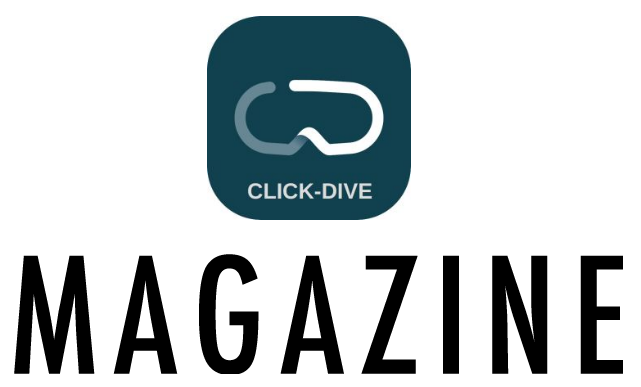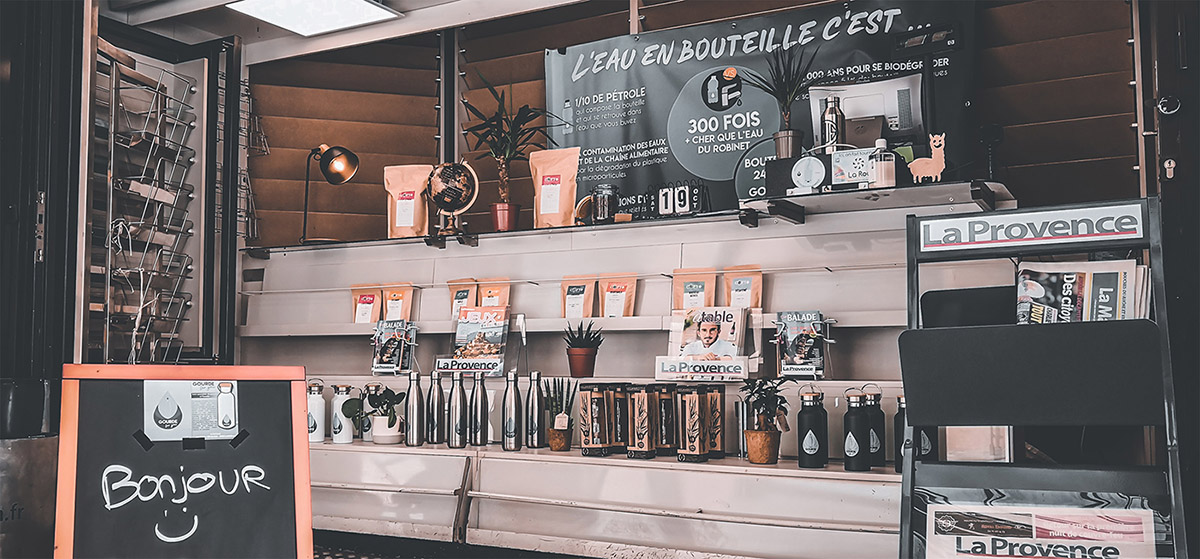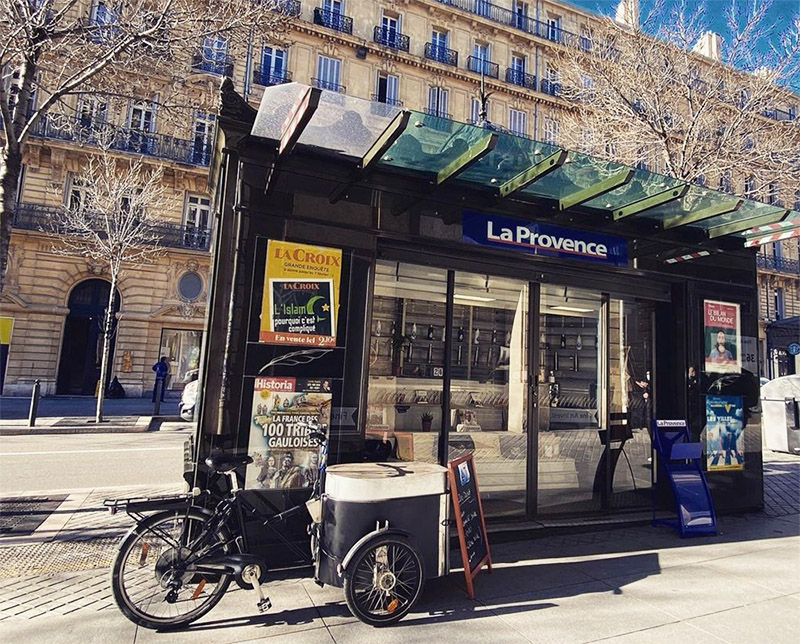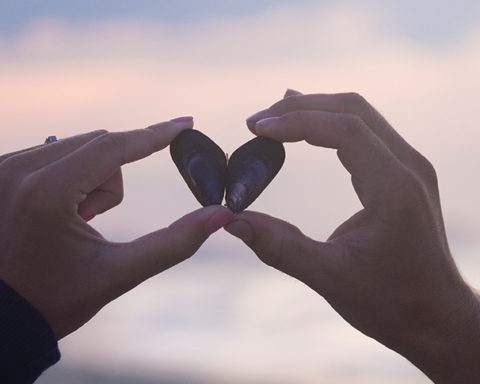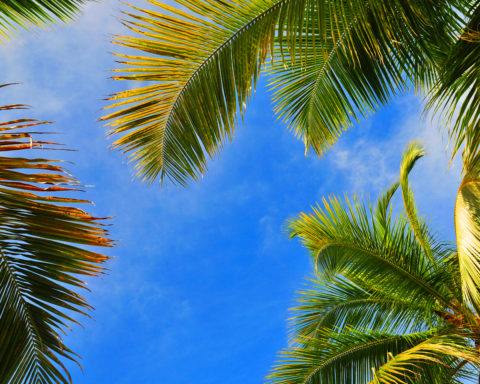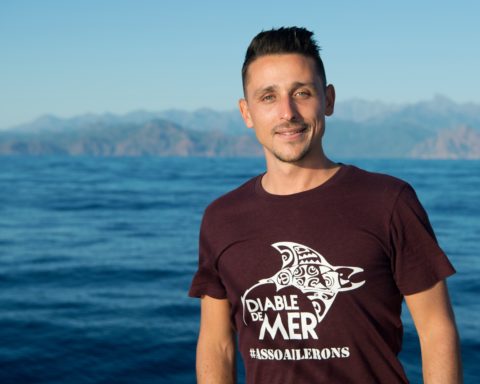Whilst walking along Rue de la République, in the heart of Marseille, you will see a newspaper kiosk that has been converted into a ‘gourd’ bar. This baroque-style kiosk provides newspapers and magazines as well as various compostable and/or sustainable bottles available to the public. These stainless steel or corn starch based bottles are an excellent alternative to plastic water bottles. When you purchase them, you will have the opportunity to use an application called Hoali. This innovative application maps the drinkable water points where you can fill your water bottles in the city. It is an ideal solution to change our consumption habits; it offers an ecological and responsible alternative in the way we hydrate ourselves during the day. The application also indicates the small fair trade or eco-friendly shops in Marseille. A perfect opportunity to discover merchants who value the concept of eco-products. Gourde For You also provides free drinking water, flavoured or not, sparkling or mineral, to fill the bottles.
“Convincing new enthusiasts to use reusable bottles, as well as to preserve our planet” Juan Ladron de Guevara, co-founder of Gourde For You
This highly original and innovative company aims to promote the use of the refillable water bottle rather than the single-use water bottle. According to Surfrider Foundation Europe, the single-use water bottle is the third most common waste product found in nature (Initiatives Océanes, 2018). France is one of the top five countries in the world with the highest consumption of plastic bottled water. Scientists estimate that we consume 9.3 billion liters of bottled water in France each year and that only 49% of these bottles are recycled. The remaining 51% often end up in the wild. In order to understand the environmental cost of plastic bottled water, we need to consider its carbon footprint. Indeed, it is estimated that a single-use bottle of water pollutes 1500 times more than the water from the tap if we take into account its packaging and transport from its place of production to the consumer’s home. A single-use bottle of water travels an average of 300 kilometers before it is consumed. Furthermore, from a health point of view, we must not forget that plastic water bottles are made from polyethylene terephthalate (PET) which, according to some studies, can release chemical substances into the water. It may be time to change our habits and adopt a lifestyle with a refillable water bottle at our side. For our health and that of the environment, let’s buy and consume smarter for the planet.
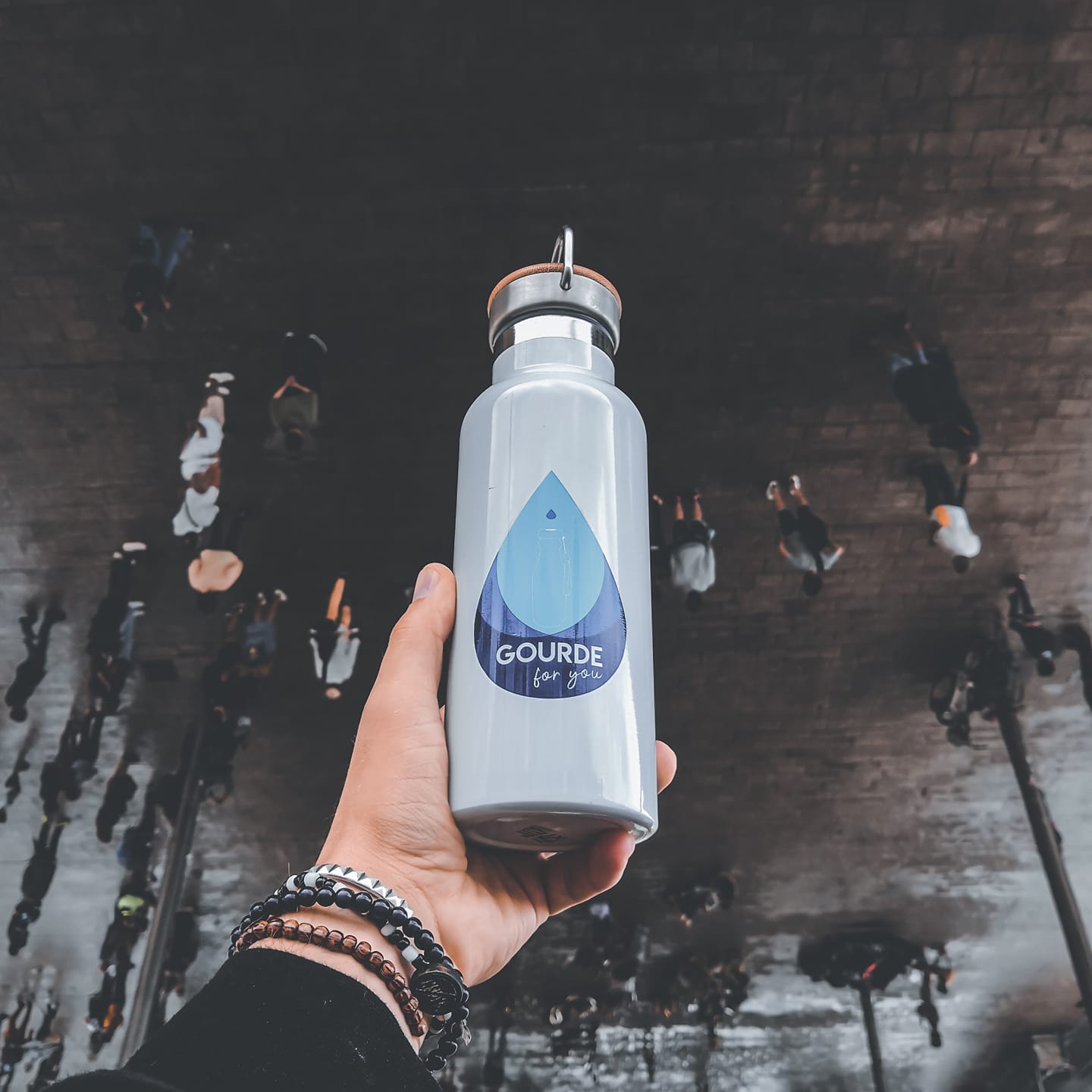
Being passionate for improving the environment, Juan and his father wanted to convey a positive message in an original way. They show how our consumption can be more respectful while being pleasant. Thus, in their kiosk, they offer their customers a complete range of eco-responsible products. To do so, they have partnered with several committed brands. We are very proud to announce that our entire selection of environmentally friendly soaps is available in their booth. We invite you to browse through our collection of products while also enjoying a “Cofy nt” coffee roasted in Marseille.
Speaking with Juan, one can see that this young man has always had a very committed spirit. Indeed, after completing his STMG baccalaureate, Juan decided to do a civic service at unis-cité, where he was committed to promote good nutrition amongst young people from disadvantaged neighbourhoods as well as supporting elderly people in times of isolation. He then founded a mobile three-wheeled coffee shop in Dijon, where he sold a selection of organic coffees. Today, he joins forces with his father to promote the use of the sustainable water bottle instead of the plastic bottle in order to preserve the environment. This determination to do better and this passion to act differently demonstrates that each of us can participate in the common effort to build a greener future.
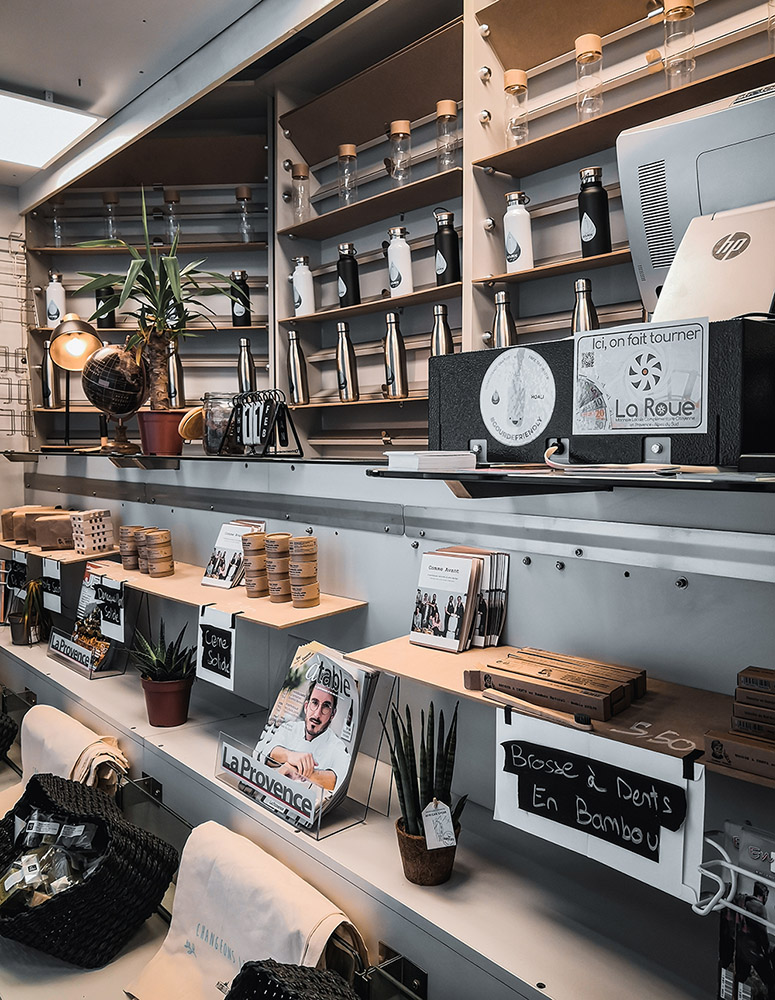
When you walk towards the old port, don’t hesitate to pass by Republic Street to meet Juan and discover his project. Let’s change our habits for a more promising future. Encourage these start-ups that value eco-responsibility, solidarity and sharing approaches that are dedicated to improving the way we consume. As Gandhi phrased so well:
